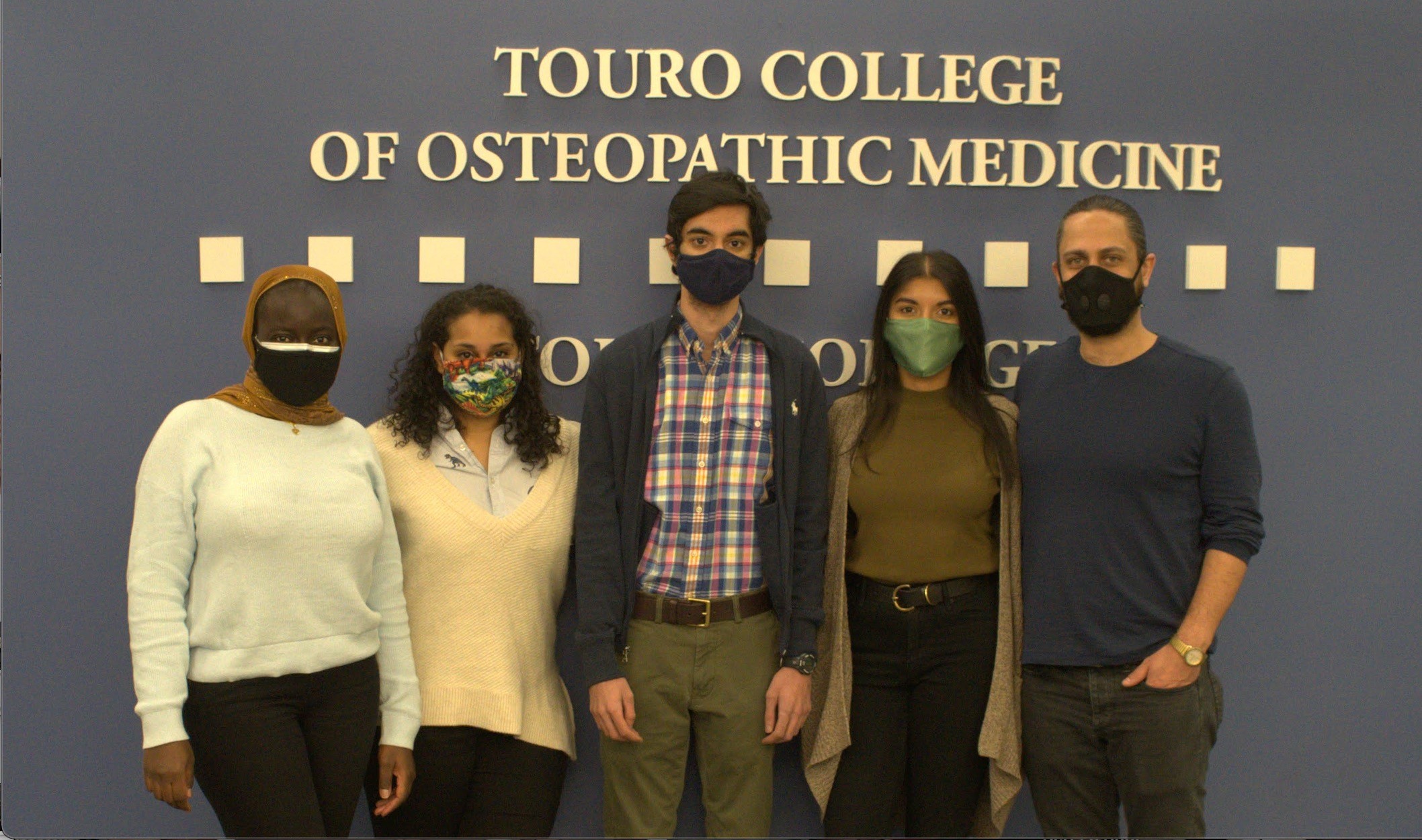TouroCOM Gets Con Ed Grant for Minority Youth STEM Program
Funds Help Support Touro College of Osteopathic Medicine’s MedAchieve Program That Mentors Underrepresented Minority Youth With Dreams of Becoming a Doctor

Consolidated Edison is partnering with Touro College of Osteopathic Medicine (TouroCOM) Harlem in support of MedAchieve, the school’s popular afterschool STEM program that mentors underrepresented minority youth who want to become doctors or other health science professionals. Con Ed is supporting the award-winning program with a $5,000 grant, provided in December.
"We are grateful for this support from Con Edison,” said TouroCOM Harlem Dean of Student Affairs Dr. Nadege Dady. “With a shared vision of expanding opportunities in STEM for students underrepresented in health care, we continue to meet our goals. The COVID-19 pandemic has also broadened our ability to expand the teaching around public health for the participants in this program. We thank Con Ed for their generosity and sponsorship."
Increasing Underrepresented Minorities in Medicine
TouroCOM’s MedAchieve is a two-year mini medical school with nearly 100 high school students enrolled, mostly from public high schools in Harlem and other low-income neighborhoods in New York City. The students participate in virtual lectures and labs twice a week for the school year.
In keeping with TouroCOM’s mission to increase underrepresented minorities (“URM”) in medicine, MedAchieve exposes the youth to careers in medicine and provides one-on-one mentoring with TouroCOM medical students.
According to a recent study by the program’s student co-directors, 80 percent of last year’s MedAchieve class perceived barriers to becoming doctors. These included cost, lack of guidance and role models, and a perceived inability to do well in classes. Yet, at the end of the school year, the concern over role models decreased significantly, according to the study.
The study “highlights the benefit of mini-medical school programs, especially programs with a mentoring component, to decrease perceived barriers of applying to medical school among URMs and suggests the potential role of similar programs to increase diversity in medicine and to decrease health care disparities among minorities in the United States,” wrote the co-authors.
Significant Growth in 2020-2021
MedAchieve is experiencing significant growth this academic year, in spite of the pandemic. The first year of the program that teaches basic medical science concepts, has 61 students enrolled, an increase of 79 percent. The second year, where basic concepts are applied to clinical diseases, has 37 students enrolled – an increase of 68 percent.
Blacks/African Americans, Hispanic/Latinx and Asians account for 30 percent each of the student body, and white students ten percent. Nearly all students - 85 percent - are women.
Students attend weekly two-hour sessions, where the TouroCOM med student mentors deliver lectures they’ve prepared based on what they’ve learned in their own classes, followed by labs and other small group activities.
This year the Touro med student co-directors modified the program for the pandemic. The topics remain mostly the same, including primary care, cardiology, anatomy, osteopathic manipulative medicine, surgery, and immunology/infectious disease, among others. But students meet online in large and small groups, and labs are zoomed live or prerecorded. Most subjects have components on health disparities.
“Opened My Eyes”
Jordan McDonald, a graduate of Harlem’s A. Phillip Randolph Campus High School and the MedAchieve Class of 2017, is now a senior at St. Bonaventure University in southwestern New York. He plans to finish in May with a bachelor’s degree in biology. McDonald credits MedAchieve with his desire to study biology, pursue a master’s in clinical laboratory science this fall and eventually go to medical school and become a neurosurgeon - a dream born of witnessing close family members undergo surgeries when he was younger.
“MedAchieve is what really opened my eyes,” says McDonald, explaining his mentor, Kowshik Sen, was quick to answer his countless questions and offer advice on which of many paths to take. “He would say, ‘You could take several paths. No matter what you do you’ll end up where you want as long as you don’t forget where you’re going.”

